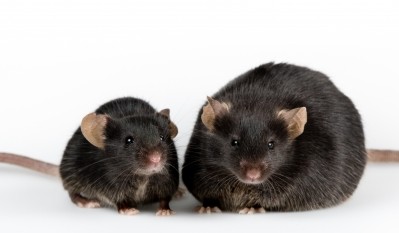Detoxifying probiotic may protect against inflammation: Rat & human data

Advanced glycation end products (AGE) accumulate during aging and are reported to contribute to increased oxidant stress and inflammation. They can be formed when food is cooked, similar to the way acrylamide is formed.
A new study in Frontiers in Nutrition indicates that Lactococcus lactis KF140 derived from Kimchi may reduce blood levels of Nε-(Carboxymethyl)lysine (CML), one of the major AGEs found in the diet.
The probiotic’s activity was linked to its production of a specific enzyme called beta-galactosidase, according to scientists from the Korea Food Research Institute, Daegu Technopark, Korea University, the University of Colorado, and MetaCenTherapeutics.
“This study is the first to demonstrate that LL-KF140 reduces CML levels or absorption owing to the activity of beta-galactosidase,” wrote the researchers. “In addition, prolonged consumption of LL-KF140 is associated with the lower level of CML in blood after the consumption of CML-rich food and that the presence in the gut microbiota.”
Study details
The scientists arrived at their conclusions after studying Lactococcus lactis KF140 probiotic in cells, rats, and humans.
The data revealed that rats consuming a CML-enriched diet plus LL-KF140 at a daily dose of 200 million CFU per kg of body weight for 14 days had significantly lower serum levels of CML and significantly less CML absorption in the liver.
This was followed by a small human study that included 12 people with serum CML levels of 2.1 micrograms per milliliter. The volunteers consumed LL-KF140 at 2 billion CFU/1.5 g for 26 days, and asked to eat CML-containing parmesan cheese.
The human trial data indicated that parmesan cheese did increase serum levels of CML and alanine aminotransferase in untreated participants, but these the probiotic prevented such increases.
Additional analysis revealed that LL-KF140 was present in feces at the end of the study, and that probiotic consumption led to changes in the abundance of 11 gut microbes at the species level.
The researchers also identified beta-galactosidase as a key enzyme produced by L. lactis that could inhibit the absorption of CML and reduce AGE levels
“Based on our findings, we suggest a broader use of probiotics, including LL-KF140, in medical and biotechnological applications because of their CML-reducing properties, which are associated with β-galactosidase, although further investigations are required in larger study cohorts using a blinded, placebo-controlled design,” concluded the researchers.
Source: Frontiers in Nutrition
Published online. Doi: 10.3389/fnut.2022.916262
“Lactococcus lactis KF140 Reduces Dietary Absorption of Nε - (Carboxymethyl)lysine in Rats and Humans via β-Galactosidase Activity”
Authors: H-Y. Park et al.

















